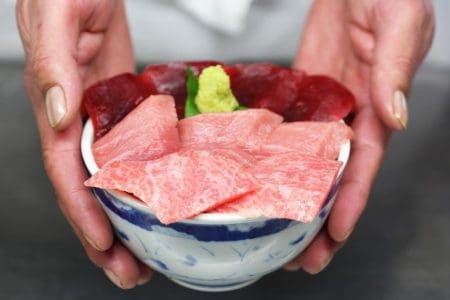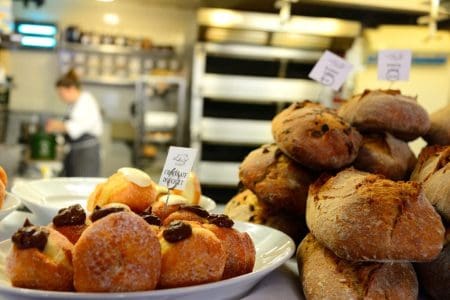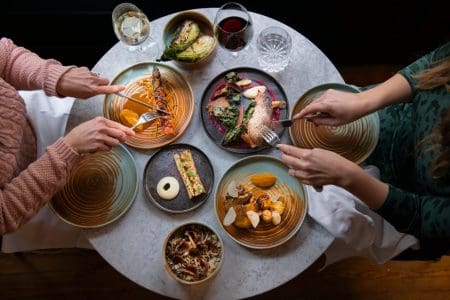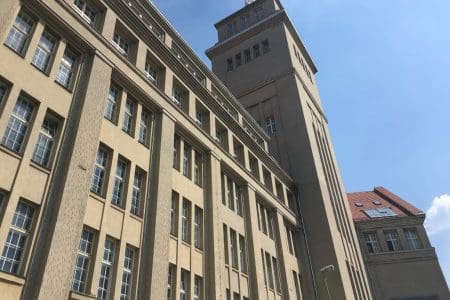“Cảm ơn anh,” Anna says to me at the end of our brief conversation in Vietnamese, most of which has been translated by my Vietnam food tour guide Paul Tran. “Cảm ơn,” I reply, uncertain as whether to call Anna an “em” or “chị”, opting for silence to avoid creating offence. I never did manage to work out which pronoun to use in my two years spent in Hanoi.
Anna comes from the Vietnamese capital, and smiles to hear that I spent two years there. She worked in the Dong Xuan Market after which the centre in which I am sipping Vietnamese coffee in Berlin is named. Her brother lives in London, but our fragmented conversation breaks down before I discover in which part.
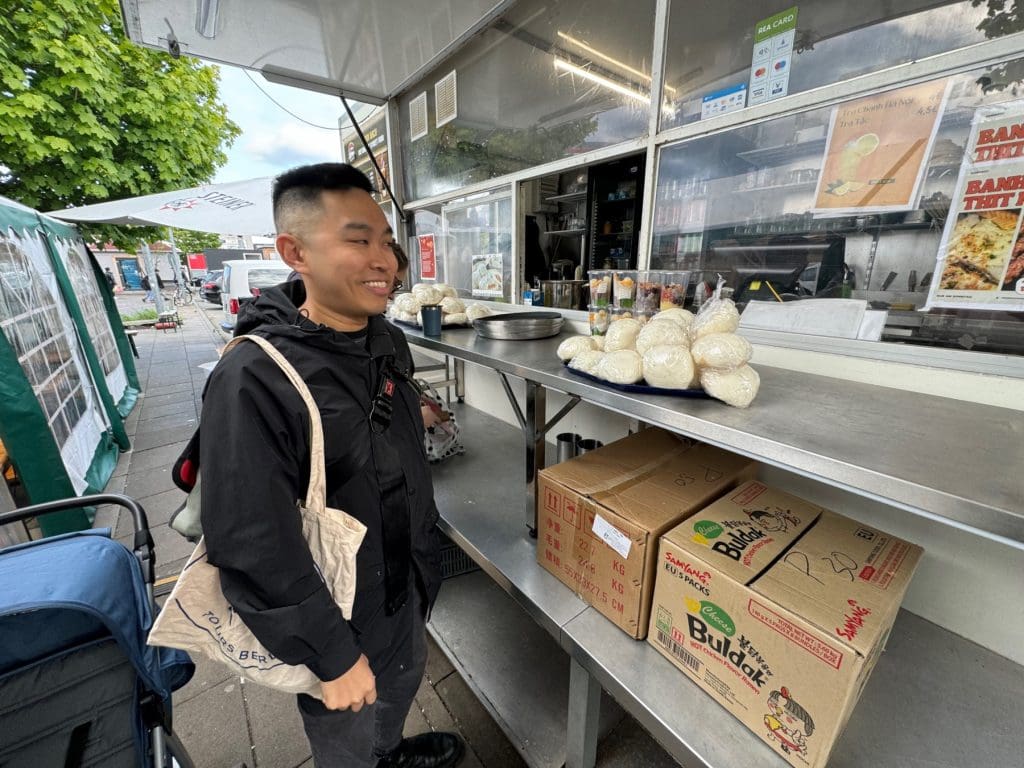
Although he hails from Los Angeles, where his parents met, Paul also lived in Hanoi, where he worked for the US Embassy. He transferred to Berlin where he realised he and the Trump administration were not exactly aligned. He provides career advice at one of the Berlin universities while not playing piano, doing stand-up comedy, or once a month on a Sunday running Vietnam food tours in the Dong Xuan Centre for Fork and Walk Tours Berlin. He is a busy man.
In LA Paul found himself surrounded by Vietnamese from the south of the country. His father who is from central Danang fought for the south in the Vietnam War. Now, he finds himself something of an oddity, the only southerner surrounded by Vietnamese from the north of the country.
Dong Xuan Centre
The heavy northern bias reflects the close relations between Communist Vietnam and the old GDR. Paul explains there were two major migration patterns. In the 50s the North Vietnamese elite came to Berlin. They were mainly technocrats. Later in the 1980s the GDR and Vietnam signed a guest worker agreement which paved the way for workers from the southeast Asian country to migrate to the Berlin capital and other parts of the GDR.
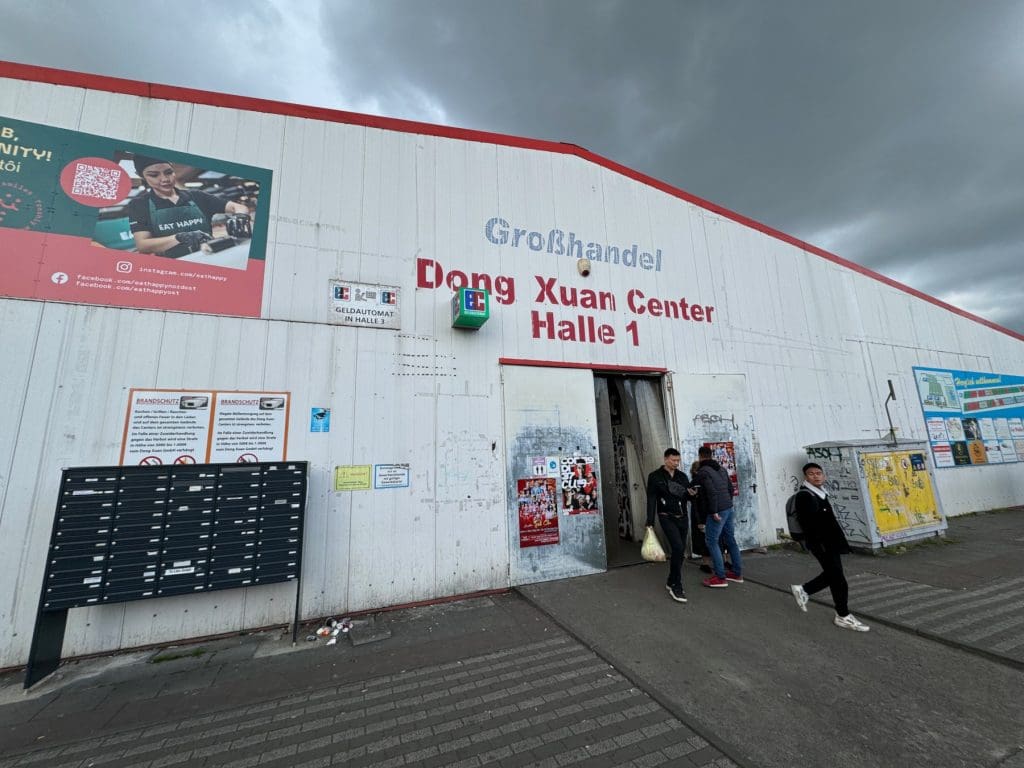
According to Paul, they were heavily discriminated against, put up in prison style accommodation, not allowed to marry Germans and on occasion forced to have abortions or be deported. After the Fall of the Wall, by the mid 90s those who did not return to Vietnam were declared illegal. Inevitably illicit gangs flourished in this period, although the gangs helped to protect the Vietnamese community from attacks from the racist far right.
Fortunately, things have progressed since then. The community bound together and in 2005 opened the Dong Xuan Centre, named after the largest market in Hanoi, which literally means “spring meadow” and at least during my stay in the Vietnamese capital two decades ago, still sold fresh vegetables. I don’t think this is the case any longer.
Dong Xuan is vast, consisting of 20 huge halls. At weekends the place is packed with Berliners, especially as this is one of the few places you can shop in Berlin on Sundays. This is when Paul normally runs his Vietnam food tour, but for me he has kindly agreed to come here on a Thursday evening when it is much quieter.
Leaving Anna, her coffee and the excellent tofu bánh mì (baguette), Paul leads me into Hall 1 to get a sense of the atmosphere in the market.
Within seconds someone comes up to Paul and greets him. Apparently, it is his barber, who has recommended we try the eel (“lươn”). Paul admits that he gets most of his best tips from his barber.
Dong Xuan Vietnam Food Tour
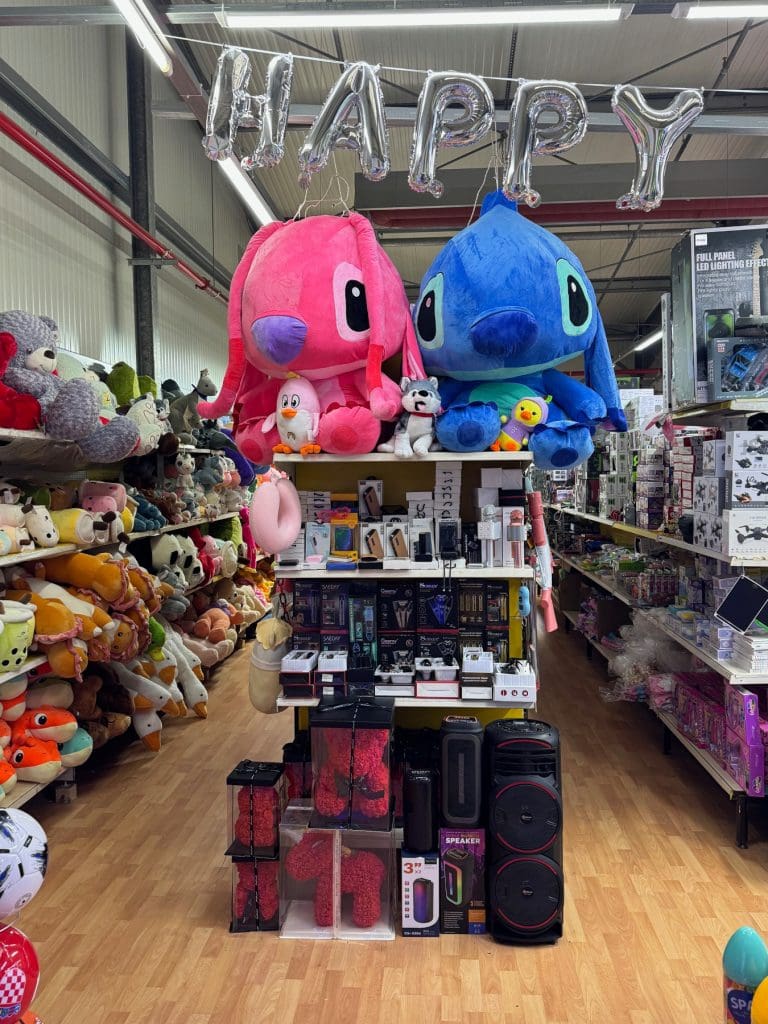
The market feels totally authentic, and takes me back to my time in the country. Here you can buy all sorts of tack you never wanted, cheap clothes, oversized toys and the most amazing Vietnamese groceries in the supermarkets which is where all the Berlin Vietnamese restaurants shop for their provisions.
Paul warns me that in part of the supermarket they have live catfish on sale in a tank. But this does not worry me as I have seen much worse on sale in Vietnam.
After a brief wander we settle down for our second course, a bowl of bún cá, a sour fish noodle soup, popular in Vietnam. I ask for some Chinese doughnuts (quẩy) sticks I used to love in Hanoi. Paul serves me before filling his own bowl. I dunk the doughnut in my soup before offering some to Paul. Vietnamese food is meant to be shared. It tastes just like the food I used to enjoy on the streets of Hanoi, only the furniture is rather more comfortable than the blue plastic chairs on which I used to drop my body.
In the background a TV shows a video of idyllic Vietnamese countryside set to traditional music. No doubt they are just waiting for us to depart before they start the karaoke.
Dong Xuan is not the only Vietnamese centre in the former Eastern Europe. There is a similar place in Prague called Sapa after the northern Vietnam mountain town. Nor is it exclusively Vietnamese. Its size and success have led to South Asian food stores appearing here, including a Food House that serves the most amazing Pakistani food, according to Paul. Some of the traders are from the Middle East. But for me this adds to the constantly changing nature of the place which started off as an alcohol measuring centre.
Paul first came to Berlin around five years ago and immediately felt at home despite being a southerner. He started off by showing friends around the market when they came on visits, before formalising the arrangement with Fork and Walk Tours last December. He says that 95 percent of customers on his Vietnam food tours are locals or expats wishing to see another side of Berlin. Tours are capped at eight.
By now the place is starting to close, and despite the late hour I feel very safe here. Also, we have one final treat.
Rediscovering Bún Chả
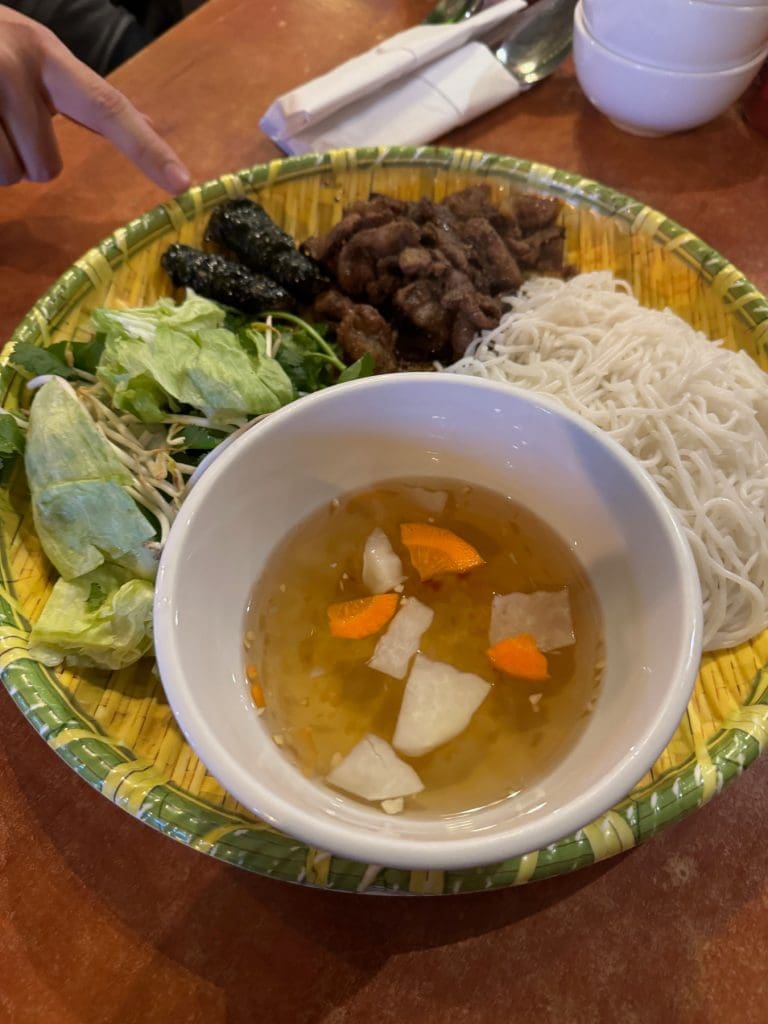
In Hanoi my staple diet was bún chả, a noodle soup served with pork rissoles and fresh vegetables. As I no longer eat meat, I can’t try it myself, but as we settle down at Dong Xuan Restaurant, Paul orders the dish I still dream about at times for himself and my companion. It looks authentic, and according to my companion it has the slight vinegar taste in the broth which is quite essential to the dish.
I follow the advice of Paul’s barber and order the eel in lemongrass and chilli to go with the nem vegetarian spring rolls. I’m not totally convinced by the barber’s cutting skills but he certainly knows his Vietnamese food.
The sun is beginning to set as we emerge from the centre and wait for the bus to take us back into the city centre. My mind is full of the most wonderful memories of my time spent in Hanoi and my mouth of the most divine spices. I have been on several food tours during my time as a travel writer but this is certainly the most memorable. And take it from one who has not just visited but lived in Hanoi, it is a very authentic experience, and a far cry from sauerkraut and currywurst.
Vietnam Food Tour Berlin
Paul runs his Dong Xuan Centre Foodie Adventure tours one Sunday a month. The Berlin Vietnam food tour is held in English with occasional German and Vietnamese, the tours last 4 hours and cost €75. You can get to the Dong Xuan Centre on the M8 or M10 tram or local buses.
